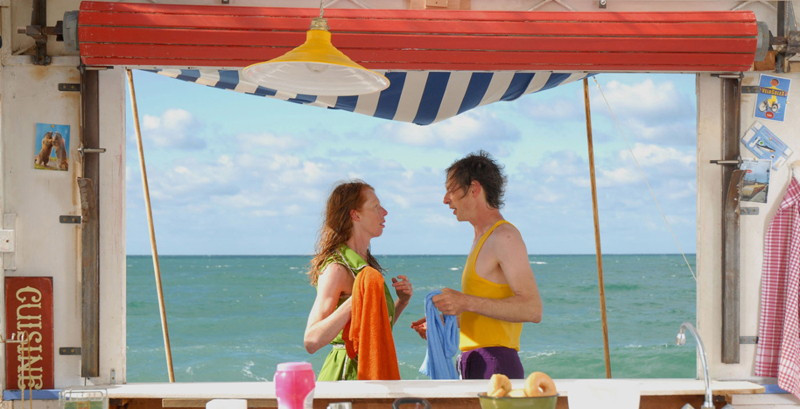The art of silent comedy
‘Delightful new film’ will leave you laughing for all the right reasons
Given that most of what passes for comedy these days is built around the repetition of the dirtiest lines Judd Apatow can concoct, it’s refreshing to see that some filmmakers have rediscovered the art of silent comedy.
The filmmakers in question are Dominique Abel, Fiona Gordon and Bruno Romy, who each perform triple-duty in the delightful new film Rumba as the combined writers, directors and stars. They are successful on each level of their involvement.
The story is a simple one: Dom and Fiona are rural school teachers whose greatest passion is Latin dancing. One night on their way home from winning a competition they get into a collision while trying to avoid Romy’s character, who is attempting to commit suicide. Fiona loses her leg in the accident and the couple must recover and soldier on without being able to share their favourite pastime.
You may be starting to think at this point that this sounds more like a tragedy, but the exuberance and life of this film will keep you laughing, even as you watch events that very few, if any, filmmakers could have made funny.
Although the film isn’t completely silent – a few words are spoken only when absolutely necessary – this is as close to pure cinema as has been seen in many years (with the exception of the brilliant first half of Wall-E). The filmmakers have much more in common with Buster Keaton, Harold Lloyd and Jacques Tati than they do with any of their comedic contemporaries; hence the payoffs to the decidedly slower-paced setups are so much more rewarding than the endless fart jokes that pass for genius these days.
Although occasionally the sight gags are a little obvious, they’re performed with such fervour and un-ironic vitality by the two charming leads that the predictability is quickly forgiven.
Other scenes, however, play out in ways no one could expect, like when a small accident caused by Fiona’s wooden leg getting a little too close to the fire ends with the couple’s house burnt to the ground.
The film works on a number of levels: on the one hand it is an interesting, if not overly academic, experiment in long forgotten comedic techniques, but more importantly Rumba is a life-affirming film in the same vein as the recent British film Happy-Go-Lucky, which will leave you laughing for all the right reasons.
Published in Volume 63, Number 26 of The Uniter (April 2, 2009)







